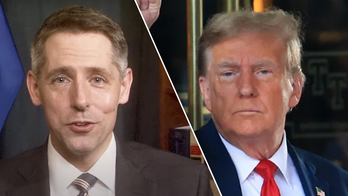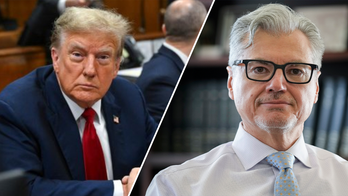Mass transit systems are vital to cities. They also typically struggle financially and as a rule spend more money than budgeted.
That's why what's happening in the cash-strapped city of Detroit is so startling.
"This past month the Detroit Transit System ran its first surplus in years: $1.6 million dollars in the black," said Mark Aesch, CEO of Transpro, which manages the city bus system.
Transpro was brought in to get the Motor City bus system straightened out after years of losing money. Management of funds at the Detroit Department of Transportation was so poor, it at times was over budget before realizing it. Service also often was lacking.
"There were a lot of complaints about buses not showing up when they were supposed to," Mayor Dave Bing said. "People were not being picked up. So, we listened to complaints from citizens."
Data also was gathered on routes and bus stops to determine which were busiest.
"We revised to accommodate the demand after having studied where the ridership is and the time of day that the ridership actually comes into play," Ron Freeland, the head of DDOT, said.
Then came the difficult decisions about how best to provide bus service for the most passengers while staying within a sharply reduced budget. The fleet of buses was trimmed by 150. Jobs at DDOT were cut by over 250. Bus service from 1 to 4 a.m. was eliminated.
The result in some cases was longer waits for passengers. Melvin Owens of Detroit says waits can stretch to an hour or more, especially for riders trying to transfer from one line to another.
"If you make it difficult for the working man then you're hurting the economy already because he can't get to and from where he needs to get to be able to provide for his family," Owens said.
Then there's the union bus drivers. Their contract with the city of Detroit expired on July 1. They've already accepted an 8 percent pay cut and are now bracing for more talk of concessions at the bargaining table.
"If we in this together ... then we are in this together," ATU Local 26 president Henry Gaffney said. "If we're not in this together ... then we're going to fight."
It's the same story for every department in Detroit city government. They have been told to expect more cuts, in some cases deep cuts. Mayor Bing says the coffers are empty and the options are few.
"There's a possibility, no one wants to talk about it ... whether or not bankruptcy would be an eminent position for the city," Bing said.
Even as dire as city finances are now, bankruptcy may mean far more drastic measures. Were it not for the state of Michigan throwing Detroit a $132 million lifeline, the city would have run out of money this past spring. Getting Detroit standing on its own two feet will mean more difficult choices.
But for now, at least the city buses are running in the right direction.





